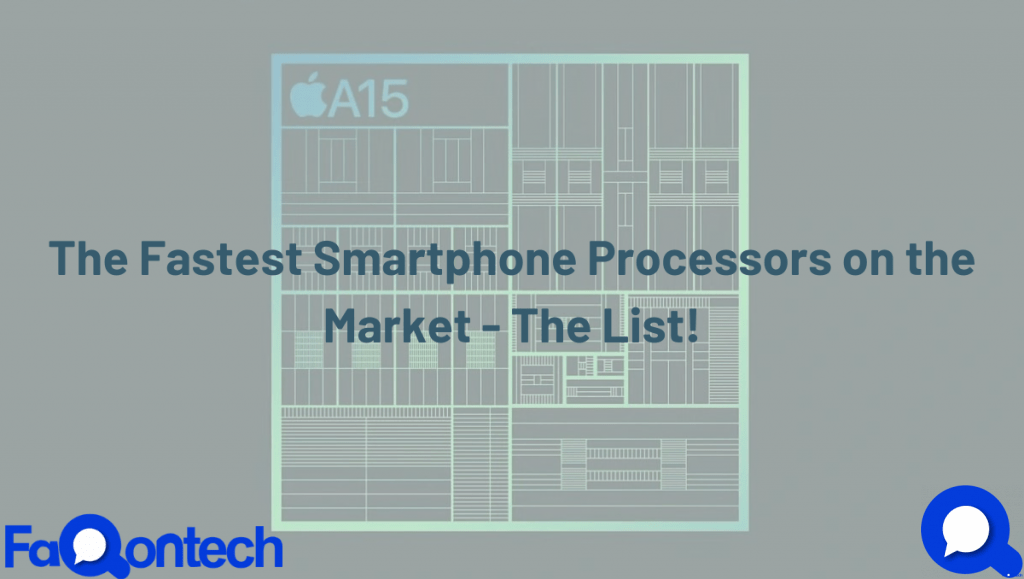Fastest smartphone processors are the beating heart of modern mobile devices, driving everything from lightning-fast app launches to immersive gaming experiences. These powerful chips are constantly evolving, pushing the boundaries of what smartphones can do.
This guide delves into the world of smartphone processors, exploring key metrics, top performers, and the factors that influence their performance. We’ll examine how these processors impact real-world usage, discuss future trends, and help you choose the right processor for your needs.
Choosing the Right Processor: Fastest Smartphone Processors
Choosing the right smartphone processor is crucial for an optimal user experience. It’s not just about raw power, but about finding the right balance between performance, battery life, price, and other factors.
Factors to Consider, Fastest smartphone processors
Selecting a processor involves weighing various factors to find the best fit for your needs. These factors include:
- Usage Patterns: Consider your typical phone usage. If you’re a heavy gamer, video editor, or multitasker, you’ll need a powerful processor. If you primarily use your phone for basic tasks like browsing, social media, and calling, a less powerful processor might suffice.
- Price: Higher-end processors usually come with a higher price tag. Budget-conscious users may need to compromise on performance to stay within their price range.
- Battery Life: Powerful processors can consume more battery power. This trade-off is important to consider, especially if you need long battery life.
- Camera Quality: Some processors offer dedicated image processing units (IPUs) that enhance camera performance. If photography is a priority, look for processors with strong IPUs.
Processor Options and Target Use Cases
Here’s a table comparing different processor options, their key features, and their target use cases:
| Processor | Clock Speed | Cores | Target Use Cases |
|---|---|---|---|
| Qualcomm Snapdragon 8 Gen 2 | 3.2 GHz | 8 | Gaming, video editing, demanding apps, multi-tasking |
| MediaTek Dimensity 9200 | 3.05 GHz | 8 | Gaming, high-end multimedia, demanding apps |
| Apple A16 Bionic | 3.46 GHz | 6 | High-performance tasks, demanding apps, gaming |
| Qualcomm Snapdragon 7 Gen 1 | 2.4 GHz | 8 | Mid-range gaming, everyday tasks, multimedia |
| MediaTek Dimensity 1080 | 2.6 GHz | 8 | Everyday tasks, mid-range gaming, multimedia |
Processor Benchmarks and Testing
Processor benchmarks are essential tools for evaluating the performance of smartphone processors. They provide a standardized way to compare different processors and help users make informed decisions when choosing a new device.
Benchmarking Methodology
Benchmarking involves running a series of tests designed to measure specific aspects of processor performance, such as CPU speed, GPU power, and memory bandwidth. These tests are designed to simulate real-world tasks and provide a numerical score that reflects the processor’s capabilities.
- Benchmarks typically involve running a series of computationally intensive tasks, such as rendering graphics, processing images, or running complex algorithms.
- The results are then compared to a database of other processors, allowing users to see how a particular processor performs relative to others.
Popular Benchmark Tools
Several popular benchmark tools are available for evaluating smartphone processor performance. These tools are widely used by tech reviewers, enthusiasts, and consumers to compare different processors and understand their capabilities.
- Geekbench: This popular benchmark tool measures CPU and GPU performance, providing scores for single-core and multi-core performance.
- Antutu Benchmark: Antutu is another popular benchmark tool that evaluates overall device performance, including CPU, GPU, memory, and storage.
- 3DMark: This benchmark tool is specifically designed to evaluate GPU performance and is often used to test the capabilities of mobile gaming devices.
Reliability and Limitations of Benchmark Scores
While benchmarks provide valuable insights into processor performance, it’s important to understand their limitations.
- Benchmark scores can be influenced by factors beyond the processor itself, such as the amount of RAM, the type of storage, and the operating system.
- Benchmark scores are not always indicative of real-world performance, as they may not accurately reflect the tasks that users perform on a daily basis.
- Some benchmark tools may be biased towards specific processors or manufacturers, which can affect the accuracy of the results.
Wrap-Up
As smartphone technology continues to advance, the pursuit of faster processors remains a key driver of innovation. Understanding these powerful components is crucial for making informed decisions about your next mobile device. From choosing the right processor for your needs to appreciating the remarkable evolution of these chips, this guide has provided insights into the world of smartphone processors.
The fastest smartphone processors are often found in high-end devices, but it’s interesting to note that the average price smartphone has also seen a significant increase in processing power over the years. This means that even budget-friendly phones can offer a smooth and responsive user experience, making it easier than ever to enjoy the latest mobile games and apps.
 Informatif Berita Informatif Terbaru
Informatif Berita Informatif Terbaru
